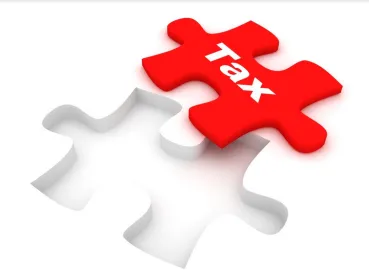In their last legislative action before the midterm elections, House Republicans earlier this month passed a three-bill package dubbed “Tax Reform 2.0” in a bid to cement their signature legislative accomplishment in voters’ minds.
The bills passed largely along partisan lines, with H.R. 6760, the Protecting Family and Small Business Tax Cuts Act of 2018, clearing the lower chamber without a single Democratic vote. Ten SALT state Republicans joined the entire House Democratic caucus in opposing the legislation, which would make the individual rates, credits, business deductions, and other changes enacted by the Tax Cuts and Jobs Act permanent. Under current law, TCJA’s individual title is slated to sunset after 2025, while the law’s corporate reforms remain in place. Although permanence was the centerpiece of this package, without the 60 votes needed to overcome a filibuster, the bill will not be taken up by the Senate this year.
The second bill, H.R. 6757, the Family Savings Act of 2018, drew nominal Democratic support, with ten centrists and higher office seekers siding with all Republicans. The final bill, H.R. 6756, the American Innovation Act of 2018, attracted 31 votes from across the aisle. The crossover support kept alive the possibility that these measures could be taken up by the Senate in the near future. The retirement and savings bill in particular matches up with a bipartisan Senate effort that has advanced in previous congresses, the Retirement Enhancement and Savings Act (RESA), which provides an obvious area of common ground.
With the Senate leaving town after a deal on judicial nominations, all remaining legislative action, tax and otherwise, will be left for the lame duck session of Congress. How long and how ambitious that session might be remains to be seen, and hinges largely on the outcome of November’s election. If the House flips to Democratic control, as most models suggest, it likely will be a very abbreviated work period, focused exclusively on “must-pass” items, such as the Farm Bill and any remaining government funding bills. Should Republicans keep the House, however, they might be inclined to stick around and clear the decks. Among other items of interest, tax extenders are coming up on a full year's lapse, and any tax package would open the door to a potential deal on the three consensus technical corrections to the new tax law. With auto manufacturers like Tesla and General Motors running into limits on the electric vehicle (EV) tax credit, efforts may be made to lift the cap altogether or otherwise keep the credits flowing. Finally, the aforementioned retirement and savings package could be an attractive bipartisan accomplishment, particularly as Senate Finance Chairman Orrin Hatch (R-UT) seeks to secure a few legacy items on the way out.
In all likelihood, most if not all of these items will fall into early next year, and a new Congress of unknown composition and control. The bulk of the near term action will remain on the regulatory side, as Treasury and IRS attempt to put out the major remaining pieces of TCJA implementation and guidance materials by the end of the year, with a number of them reportedly set to land around Thanksgiving. While the legislative outlook may depend on the outcome of the election, anxious taxpayers and tax professionals are sure to have a busy holiday season either way.



 />i
/>i
